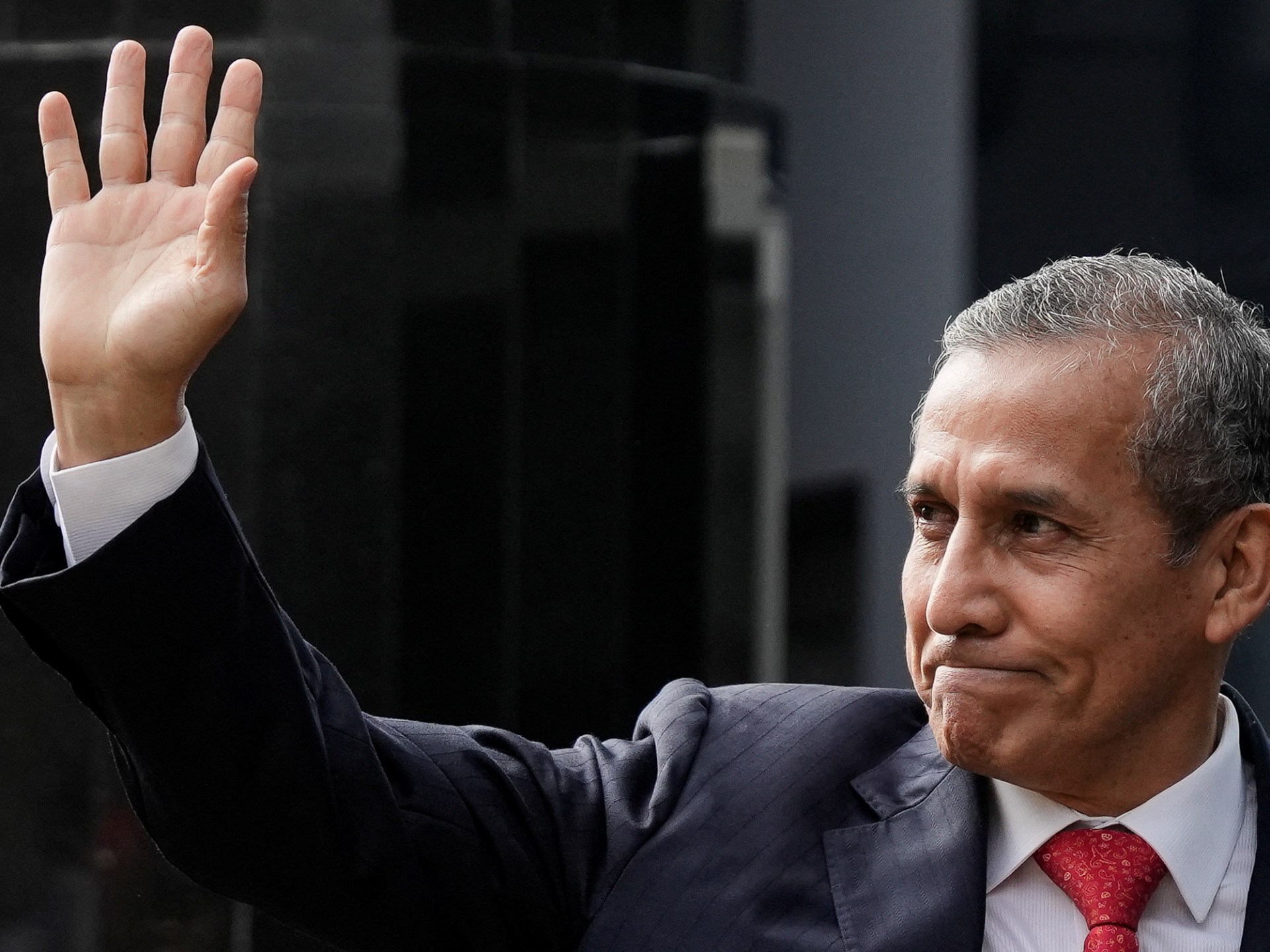Judges also order jailing of Nadine Heredia, Humala’s wife, in the same case but she flees to Brazil with her son.
A court in Peru has sentenced former President Ollanta Humala and his wife, Nadine Heredia, to 15 years in prison for laundering $3m received from Brazilian construction firm Odebrecht and $200,000 from the government of then-Venezuelan President Hugo Chavez.
Humala, 62, was taken into custody after the verdict was delivered on Tuesday and later jailed at a police station, but his 48-year-old wife requested asylum at the Brazilian embassy in Lima, according to Peru’s Ministry of Foreign Affairs.
Heredia was granted safe passage to travel to Brazil with her youngest son, the ministry said.
During his trial, which lasted three years following an investigation which kicked off in 2016, Humala decried the charges as political persecution. His lawyers plan to appeal Tuesday’s verdict.
Prosecutors alleged Humala received the illicit funds in his 2011 campaign against Keiko Fujimori, the other former president’s daughter, through Humala’s Nationalist Party.
Humala, a retired military officer who led the Andean nation from 2011 to 2016, will likely carry out his sentence on a police base built specially to house Peru’s jailed leaders.
Former presidents Alejandro Toledo and Pedro Castillo are currently jailed at the site, while the late Alberto Fujimori stayed there for 16 months until his release in 2023.
Toledo, in power from 2001 to 2006, was sentenced last year to more than 20 years in prison for accepting $35m in bribes in exchange for government contracts.
Former President Pedro Castillo is also being detained as he faces charges of “rebellion” after a failed attempt to dissolve Congress in 2022.
In 2019, former President Alan Garcia killed himself by gunshot wound as police descended on his home to arrest him for alleged corruption related to Odebrecht.
In 2016, Odebrecht agreed to pay $3.5bn in penalties in Brazil, the United States and Switzerland arising out of payments of more than $788m in bribes to foreign leaders and government officials in order to win infrastructure projects.
